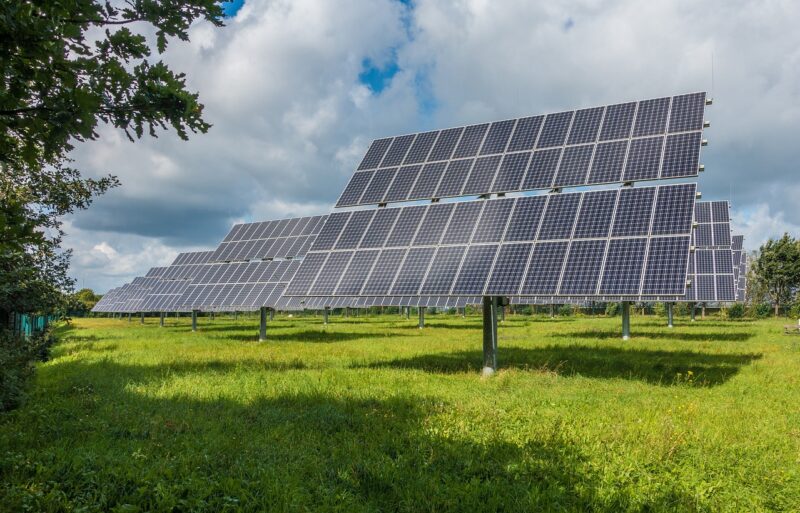Energy Conservation While Traveling: Traveling can be an incredible way to explore new places, meet new people, and experience different cultures. However, it can also have a significant impact on the environment, particularly when it comes to energy consumption. From flights and road trips to hotel stays, energy consumption is a major contributor to carbon emissions, which is one of the leading causes of climate change.
Fortunately, there are many simple steps that travelers can take to conserve energy while on the go. By adopting these habits, travelers can reduce their carbon footprint and help protect the planet.
Here is an ultimate guide to energy conservation while traveling:
- Choose Sustainable Transportation Transportation is one of the largest contributors to carbon emissions, so it’s important to choose sustainable options whenever possible. For shorter trips, consider walking, biking, or using public transportation instead of driving. For longer distances, take advantage of trains, buses, or carpooling whenever possible.
When flying is necessary, choose airlines that have a strong commitment to sustainability, such as reducing emissions through fuel efficiency or offsetting carbon emissions through investments in renewable energy.
- Stay in Energy-Efficient Accommodations Another major contributor to energy consumption while traveling is hotel stays. To minimize your impact, look for hotels and resorts that have adopted energy-efficient practices, such as using renewable energy sources, reducing waste, and conserving water.
Additionally, be mindful of your energy usage while staying in a hotel room. Turn off lights and electronics when not in use, and adjust the thermostat to conserve energy.
- Reduce Waste Reducing waste while traveling is another great way to conserve energy and reduce your carbon footprint. To reduce waste, bring your own reusable water bottle, coffee mug, and shopping bag, and avoid using disposable plastic items such as straws, cutlery, and water bottles.
When dining out, opt for restaurants that use locally-sourced, organic, and seasonal ingredients, and choose meals that are low in food waste.
- Make Use of Renewable Energy Sources When traveling, look for opportunities to make use of renewable energy sources, such as solar or wind power. This can include charging your devices using solar panels or wind turbines, or staying in accommodations that are powered by renewable energy.
- Support Local Communities Supporting local communities is an important aspect of sustainable travel, and it can also help conserve energy. By choosing to stay in locally-owned and operated accommodations, you can help support the local economy, which can in turn reduce energy consumption by reducing the need for transportation and import/export of goods.
In addition, choose to participate in local activities and events, and buy locally-made products, which can help reduce the carbon footprint associated with transportation.
- Be Mindful of Energy Usage One of the simplest ways to conserve energy while traveling is to be mindful of your energy usage. This can include turning off lights and electronics when not in use, using natural light whenever possible, and adjusting the thermostat to conserve energy.
In addition, be mindful of your water usage by taking shorter showers, using low-flow toilets, and conserving water whenever possible.
- Choose Eco-Friendly Activities When planning activities while traveling, choose eco-friendly options that have a low impact on the environment. For example, instead of going on a helicopter tour, opt for a guided hike or bike tour. Instead of going on a wildlife safari, consider visiting a wildlife sanctuary that has a commitment to conservation and animal welfare.
- Be a Responsible Tourist Finally, be a responsible tourist by respecting the local culture, environment, and wildlife. This can include leaving no trace, respecting wildlife and their habitats, and being mindful of your carbon footprint.
In addition, consider volunteering or participating in eco-friendly initiatives while traveling. This can include beach clean-ups, reforestation projects, or supporting conservation organizations. By taking an active role in protecting the environment, travelers can help conserve energy and reduce their carbon footprint while on the go.
In conclusion, conserving energy while traveling is an important aspect of sustainable tourism. By choosing sustainable transportation, staying in energy-efficient accommodations, reducing waste, making use of renewable energy sources, supporting local communities, being mindful of energy usage, choosing eco-friendly activities, and being a responsible tourist, travelers can help conserve energy and reduce their carbon footprint while exploring the world.
Similar Articles
Agritourism: A Unique and Authentic Travel Experience
Adventure Tourism: Exploring the Thrills of the Great Outdoors
Sustainable Tourism: A Journey for a Better Tomorrow
Frequently Asked Questions about Energy conservation while traveling
Q. What is energy conservation while traveling?
A – Energy conservation while traveling refers to the efforts made by travelers to reduce their carbon footprint and minimize the impact of their travel activities on the environment. This can include choosing sustainable transportation, staying in energy-efficient accommodations, reducing waste, making use of renewable energy sources, supporting local communities, being mindful of energy usage, choosing eco-friendly activities, and being a responsible tourist.
Q. Why is energy conservation important while traveling?
A – Traveling can have a significant impact on the environment, particularly with regards to energy consumption. By conserving energy while traveling, travelers can reduce their carbon footprint and help protect the planet.
Q. What are some ways to conserve energy while traveling?
A – Some ways to conserve energy while traveling include choosing sustainable transportation, staying in energy-efficient accommodations, reducing waste, making use of renewable energy sources, supporting local communities, being mindful of energy usage, choosing eco-friendly activities, and being a responsible tourist.
Q. What is considered sustainable transportation while traveling?
A – Sustainable transportation while traveling refers to modes of transportation that are environmentally friendly and have a low impact on the environment. This can include walking, biking, public transportation, trains, buses, carpooling, and airlines that have a strong commitment to sustainability.
Q. What are energy-efficient accommodations while traveling?
A – Energy-efficient accommodations while traveling refer to hotels and resorts that have adopted energy-saving practices, such as using renewable energy sources, reducing waste, and conserving water.
Q. What are some ways to reduce waste while traveling?
A – Ways to reduce waste while traveling include bringing reusable water bottles, coffee mugs, and shopping bags, avoiding disposable plastic items, and choosing restaurants that use locally-sourced, organic, and seasonal ingredients.
Q. What is meant by renewable energy sources while traveling?
A – Renewable energy sources while traveling refer to energy sources that are replenished naturally and do not deplete over time. This can include solar and wind power, which can be used to charge devices or power accommodations.
Q. What is the impact of supporting local communities while traveling?
A – Supporting local communities while traveling can have a positive impact on the environment by reducing the need for transportation and import/export of goods, and by supporting the local economy. Additionally, participating in local activities and events and buying locally-made products can reduce the carbon footprint associated with transportation.
Q. Why is being mindful of energy usage important while traveling?
A – Being mindful of energy usage while traveling can help conserve energy and reduce carbon emissions. This can include turning off lights and electronics when not in use, using natural light whenever possible, and adjusting the thermostat to conserve energy.
Q. What are eco-friendly activities while traveling?
A – Eco-friendly activities while traveling are activities that have a low impact on the environment. This can include guided hikes or bike tours, visiting wildlife sanctuaries, volunteering or participating in eco-friendly initiatives, and respecting the local culture, environment, and wildlife.
Q. How can being a responsible tourist help with energy conservation while traveling?
A – Being a responsible tourist involves respecting the local culture, environment, and wildlife. This can include leaving no trace, avoiding activities that harm wildlife or their habitats, and being mindful of the carbon footprint associated with travel activities. By being a responsible tourist, travelers can help conserve energy and reduce their carbon footprint.
Q. Can energy conservation while traveling be done on a budget?
A – Yes, energy conservation while traveling can be done on a budget. Choosing sustainable transportation, reducing waste, making use of renewable energy sources, and being mindful of energy usage are all cost-effective ways to conserve energy while traveling.
Q. What role do accommodations play in energy conservation while traveling?
A – Accommodations play a significant role in energy conservation while traveling. Energy-efficient accommodations can reduce energy consumption, support the use of renewable energy sources, and reduce waste. Additionally, accommodations can educate guests on sustainable practices and encourage their participation in eco-friendly initiatives.
Q. How can travelers be more environmentally conscious while choosing activities while traveling?
A – Travelers can be more environmentally conscious while choosing activities while traveling by researching eco-friendly activities, choosing activities that respect the local culture, environment, and wildlife, and avoiding activities that harm wildlife or their habitats.
Q. What are the long-term benefits of energy conservation while traveling?
A – The long-term benefits of energy conservation while traveling include reducing carbon emissions, conserving energy and natural resources, and preserving the planet for future generations. Additionally, by choosing eco-friendly activities and supporting local communities, travelers can help promote sustainable tourism and protect the environment.











Your point of view caught my eye and was very interesting. Thanks. I have a question for you. https://www.binance.info/it/join?ref=S5H7X3LP
Your article helped me a lot, is there any more related content? Thanks!